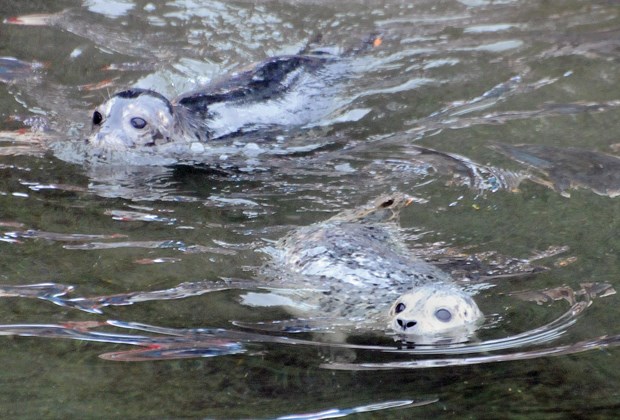This story has been updated with new information.
A National Energy Board inspection has found that Trans Mountain violated underwater noise conditions that could harm marine animals while pile driving in the Burrard Inlet.
Trans Mountain is contesting the violation and submitted a rebuttal with evidence to the board on Friday. The NEB's initial report had not yet been updated as of Saturday to reflect these new findings.
After reviewing three weeks of Trans Mountain’s underwater noise and marine mammal reports from February 11 to March 3, an inspector found the company had violated its environmental protection plan for the Westridge marine terminal in Burnaby. The board gave Trans Mountain a notice of non-compliance and asked the company to explain the situation in a follow-up report.
The inspector found discrepancies on reviewing two submissions by Trans Mountain. The first indicated there were no marine animals seen while pile driving between 11:27 a.m and 1:07 p.m. on February 17, but the second report says a habour seal was spotted four times between 11:09 and 11:57 a.m., as close as 40 metres away on the same day.
“Based on the information above, harbour seal(s) were observed within the exclusion zone (150 m) within 30 minutes prior to and during impact piling and that piling continued despite the seal sighting(s),” reads the inspector’s report.
Trans Mountain responded by saying the harbour seal was not in the area during the time, and the discrepancy between the two reports was a “typographic error.” The NEB did not accept the justification, and asked Trans Mountain to submit field logs for the marine mammal observers on February 17.
Ali Housell, Trans Mountain spokesperson, said in an email that the company complied with the information request and filed a full field log from the marine mammal observer with the NEB Friday.
"In compliance with our regulatory authorizations Trans Mountain waited the required 30 minutes from when the seal was observed, before we re-started impact pile driving. The seal was observed at 11:57 and the work re-started at 12:27," she wrote. "The summary report reviewed by the NEB during the inspection showed a digitally-generated time stamp of when the noise monitoring report was opened not the time the pile driving began."
Trans Mountain is required to watch for wildlife in “marine mammal exclusion zones” during impact pile driving, according to environmental protection plan for the Westridge marine terminal. Workers are required to stop pile driving until the mammals have left the area or haven’t reappeared for 30 minutes.



